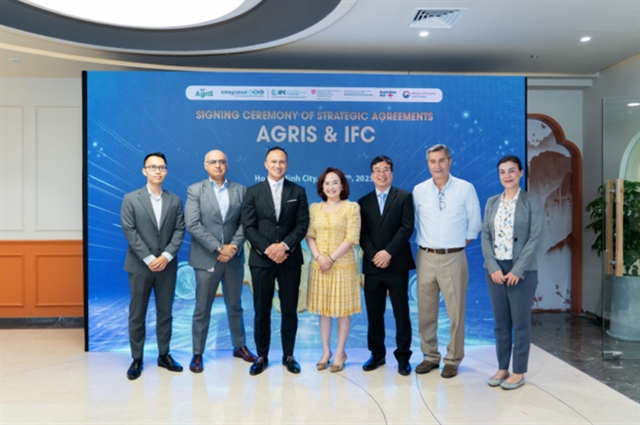TTC AgriS and International Finance Corporation (IFC) – a member of the World Bank Group – signed a Memorandum of Understanding (MoU) to strengthen sustainable development governance in alignment with global standards.

HCM City — TTC AgriS and International Finance Corporation (IFC) – a member of the World Bank Group – signed a Memorandum of Understanding (MoU) to strengthen sustainable development governance in alignment with global standards.
This event marks a major milestone in AgriS’s journey to optimise its Environmental and Social Management System (ESMS) in line with international practices and realise its net zero emissions goal by 2035.
Under the collaboration, and with support from the Swiss State Secretariat for Economic Affairs (SECO) and the Government of Australia and Korea, IFC will partner with AgriS to develop a comprehensive action plan to reduce emissions, implement carbon offsets, and enhance ESG monitoring across the agricultural value chain.
Following the advisory phase, AgriS and IFC will jointly roll out intensive training programs focusing on three core pillars: food safety – food loss reduction – greenhouse gas emission reduction. The two parties will also establish a carbon neutrality strategy and a third-party-verified net zero mechanism.
IFC will support AgriS in comprehensively reviewing its current ESMS and developing an optimised roadmap in line with IFC’s Environmental and Social Performance Standards. Key efforts include: integrating E&S standards into operations, internal policies, and risk management systems; providing in-depth E&S compliance training for internal teams and strategic suppliers; linking AgriS’s operational model with global financial ecosystems and international partners.
This partnership is expected to deliver tangible outcomes: training 200 internal trainers (ToT); 100 per cent of ESG-related personnel trained to international standards; over 20 per cent of key suppliers integrated into the upgraded ESMS; and at least a 20 per cent reduction in post-harvest losses in key sourcing regions, enhancing value chain efficiency and accelerating progress toward net zero 2035.
As Việt Nam accelerates the implementation of Resolution 57-NQ/TW and the transition to a circular economy, AgriS is emerging as a pioneer, demonstrating not only internal operational capabilities but also driving positive impact across the entire agriculture sector.
The implementation of a value-chain-wide ESMS is a strategic move that positions AgriS among the first Vietnamese agribusinesses to apply structured, effective ESG governance, contributing actively to the national agenda for circular agriculture. — VNS
- Tags
- esg;agriculture





